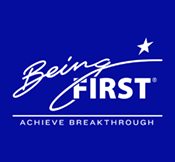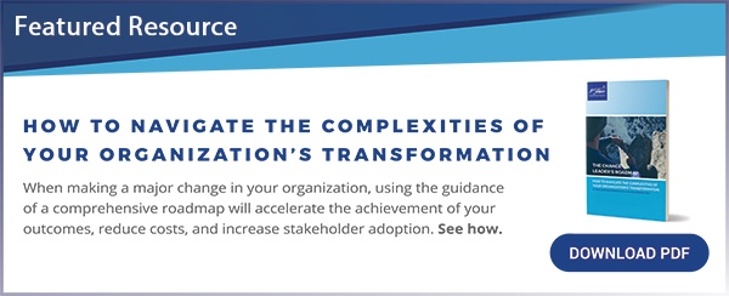If you are asked to step onto the speeding train of a major change initiative that is at risk of derailing, how do you get it back on track and help the project team understand how it got to this point, and how to make it better?
This is tough at best, especially when those currently on the train, or worse, running the train, are afraid of looking bad, are overwhelmed, and are actually in need of major help.
This is even tougher when the change initiative is transformational, and there is no linear track to count on about three stations ahead…
All aboard change initiative leaders
The world needs better change leaders, no if’s, and’s or but’s, especially for the myriad transformational changes our organizations face.
That includes project leaders, change consultants, project team members, and executive sponsors. And we have the responsibility–no, the obligation!– to help turn leaders and managers into better change leaders while the train of change initiatives is speeding ahead.
Getting change leaders to engage in corrective project work is essential, and so is getting their agreement to proactively learn how to do it better. They have to acknowledge the need to get better and be willing to do it.
Creating New Tracks for Change Capability
This requires two things of us change consultants: consulting to the organizational change project, and teaching while we consult. That means making explicit the “what,” “why,” and “how” of what we are recommending so that our clients can learn from it.
Sometimes we need to do this coaching on the run when the train is in full gear.
Hopefully, though, some of it can happen when the train makes a stop at an important station and you can talk about where you have just come from, where the train needs to go from here, and how to get it there. This is especially true if the effort does not have the security of pre-set train tracks that will take you where you want to go.
How to create the new tracks in real time is a part of what we need to teach.
Ready to Take on Change Initiatives?
Are you up for it? Do you set up your work in this way? Are you a “project fixer,” a “teacher,” or both?
If both, what do you use to help fortify your teaching, coaching, and mentoring on-the-job?
For me, change process models help, but can be too intellectual unless I make them absolutely relevant to the work that is needed.
Tools help, since the client can rely on them for this work and the next.
Us modeling the thinking and behavior that is needed, what questions to ask, how to intervene with the client, especially executives, is essential. And talking about mindsets, style, and quality of relationship is also in game, since the client has as much to gain from building their own personal toolkit as well as their organizational toolkit for how to lead change.
What do you use for your change initiatives? What do you find most helpful to ensure you are leaving a legacy behind of stronger change leadership?
Want to know if your initiative is on the right track??
 |
Join us for our upcoming webinar: How to Use a Change Audit to Avoid the Cost of Rework During Transformation and discover what’s needed for your change audit to reap the rewards of a faster, cheaper and more successful change initiative. |
You’ll learn how a change audit can:
- Highlight what it will take for your change to be set up for success
- Raise leaders' awareness of their change leadership strengths and weaknesses – for this initiative and likely all others
- Serve as a status check on morale and progress during the change
- Wake up your organization to the need to take the change more seriously
- Signify the importance of engaging your people in creating their future in ways that work for them
- Strengthen leadership's intention to involve and respect people's input to the initiative’s overall success
How to Use a Change Audit to Avoid the Cost of Rework During Transformation
Thursday, April 28, 2022 | 10-11am Los Angeles, 1-2pm New York
Please complete the form to secure your seat. We will email you a confirmation with instructions for how to join us on April 28. All who register will receive a copy of the recording. Can't make it live? Click here to request a link to the recording.

